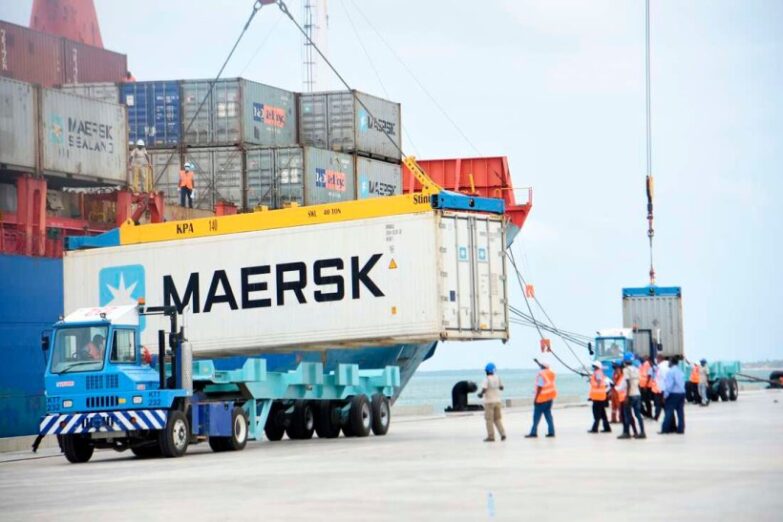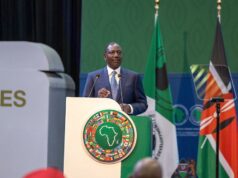
President William Ruto on Saturday banned international firms from engaging in clearing and forwarding business and instructed state agencies at Mombasa Port to operate on a 24-hour basis.
The reason behind this move was that major shipping lines, which were involved in land-based logistics services, were using their financial strength to prevent small firms in Kenya from conducting business.
Ruto believes that banning foreign shipping lines from clearing and forwarding activities in the country will open up opportunities for local Kenyan firms and generate more job opportunities for the citizens. Over the years, local companies have been expressing their concerns about multinational firms setting up One-stop logistics centers in Mombasa, which resulted in them being pushed out of the market due to the stronger financial position of foreign companies.
The President’s action aims to decrease the dominance of foreign firms in the local logistics sector and strengthen the position of local companies. This move aligns with similar actions taken by more than 50 other countries that have restricted foreign access to their domestic transportation industries.
For a long time, shipping lines have been resisting the implementation of Section 16(1) of the Merchant Shipping Act (MSC) of 2009, which prohibited them from engaging in land-based segments of the shipping logistics supply chain.
Aisha Kadenge, a logistics expert, highlighted that Kenya’s shipping industry had been mainly controlled by foreign companies, which also had a strong presence in the auxiliary maritime sector. This setup allowed foreign firms to introduce charges that were not applicable in other world ports, giving them an advantage over local firms.
Additionally, during his speech in Changamwe, Ruto announced a halt on fish imports from China, stating that the country had sufficient fish resources. Instead, his administration would focus on training and equipping local fishermen to meet the domestic demand for fish.










